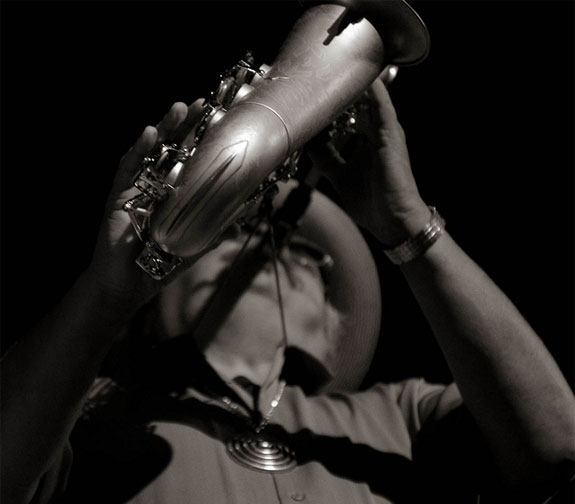How to Get a Whole Lot Better, a Whole Lot Faster

10,000 Hours to Mastery….Really?
I’d like to begin by stating that I disagree with a couple of famous old sayings. The first one, “It takes 10,000 hours to master a skill,” in my opinion, is incorrect because I feel that it takes a lifetime of continued learning if you are in serious pursuit of mastery of your craft. The second one, “There are no shortcuts to learning your craft,” may take a little more explaining.
Maybe I’m making a rash judgement of the second saying, because in actuality I feel that the shortcuts involve avoiding the pitfalls. As a developing saxophonist and jazz musician, these pitfalls, mainly practice methods, are the things that keep you from advancing at a consistent and steady pace.
In this article, I’d like to help you learn how to establish a philosophy geared toward setting you on the road toward mastery of playing the saxophone and jazz without the detours and pitfalls many of us take on the journey. This straightforward path, in my opinion, is the shortcut in the pursuit of mastery.
Perform a Candid Self-Evaluation
The first point I’d like to stress is that you need to develop the ability to accurately perform a regular and candid self-evaluation. Having a good private instructor can certainly assist in this, but nothing beats having the ability to observe yourself from a third person perspective.
I’ll often ask students to record themselves, then we listen back making reference to certain points in the recording. By doing this, we can identify issues that they can address before recording and listening again. The really cool thing is that over time, you develop the ability to hear and recognize these issues and others in real time, without the assistance of the recorder.
With this type of mindset, you’ll eventually learn to listen to every moment of every sound that comes from your instrument. You’ll also learn to listen to the accumulation of those moments into their collective musical culmination.
Learn How You Learn
The other important factor is that you learn how to create practice routines that help you address problems. Again, a private instructor can help with this, but it’s essential that you become a self-taught student of the learning process. More importantly, learn how you learn and work to develop new ways to learn.
One of the things I like most about being a private instructor is that I get to study the ways different folks learn. Some people learn best by listening, others by seeing and observing, others through reading and analysis. I’ve found that by helping students look for ways to learn, I’ve actually expanded the methods I personally use in the practice room to include many different practice techniques.
You can look for different ways to learn by taking private lessons in both live and online settings, attending live and virtual clinics, reading books on practice methods and jazz theory, communicating with other musicians in forums, listening to and watching videos of great jazz musicians, and by constantly seeking out approaches geared toward learning about various aspects of saxophone and jazz performance.
Be Creative in Your Approach
It’s important that you maintain a creative approach to learning. I’m constantly amazed at the way many students studying a creative art form such as jazz saxophone resist exploring creative practice techniques. I often get the response that they “just want to get it perfect” before moving on.
While I would never suggest that someone not work toward perfection, I would suggest that there comes a point when the progress has slowed or even stopped, and it’s time to move on to a new approach or tune. There are exceptions, especially if there is a pending performance and you need to work exhaustively on a tune.
Remember, many of the things you practice may be approached differently, or even cycled back through at a later time. When learning jazz standards, for instance, I may work on a tune for a week or two, hitting it with a number of approaches. Then, I might set it aside or add it to my “review” category for several months before returning to it and practicing new approaches I’ve found.
The important thing to keep in mind is that you won’t go as far if you practice the same stuff the same way day after day, week after week, year after year. Keep your progress moving forward by spending a reasonable amount of time working on something while looking for new and effective approaches designed to target your self-perceived weaknesses.
Know the Elements
As a final point, I think it’s important that you know the elements of playing jazz saxophone. If you don’t know what to look for in your self-evaluation, you won’t know what to target in the practice room.
Rather than creating a comprehensive list here, let me just mention that you should work at first to develop an understanding of the fundamentals of sax playing: tone, articulation, technique, reading skills, etc. This list will expand as your skill level increases.
You should also work to develop an understanding of the components of jazz. These include things like style, inflection, harmony, ear training, and repertoire. Again, this list will expand as you develop.
There Really Are No Shortcuts
So I guess there are really no shortcuts on the jazz saxophone path of mastery, but there are a number of detours that threaten your consistent growth and achievement. Learning about your personal learning process and how to target weaknesses in your playing will help keep you moving toward mastery of the skill. Above all, remember it’s about the journey, not the destination. 10,000 hours?…no, more like a lifetime.
Study with Randy
Randy offers a series of online jazz lessons and beginning sax lessons in podcast format. He also offers personalized lessons by email, in addition to private lessons in his studios in the North Atlanta area. Visit his websites at www.randyhunterjazz.com and www.beginningsax.com, or drop him an email at randy@randyhunterjazz.com for more information..






August 20, 2015 @ 5:14 am
10000 hours @ 1 hour/day = 27 years and 5 months of practice ;-)